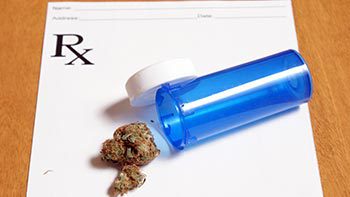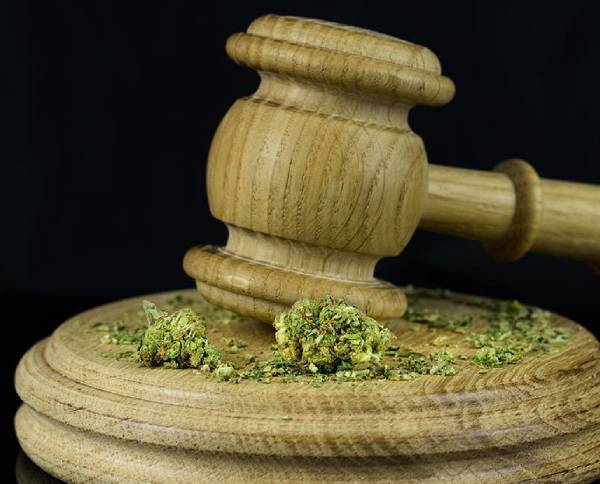Florida marijuana laws have traditionally been extremely tough. But as the country continues to evolve on marijuana law, Florida is following that trend to a certain extent. Due to the complexity of marijuana law in Florida, specifically in Clearwater, understanding the current laws in 2022 is key to ensuring that your rights are upheld in the criminal justice system.
Florida Weed Laws: What Are the Marijuana Laws in Florida?
Florida marijuana laws provide comprehensive information regarding the use and sale of weed, including the types, potential penalties, and additional penalties for possession in certain locations. Florida laws on weed also include what you need to know regarding Florida medical marijuana laws.
Recreational Use & Sale of Weed: Is weed legal in Florida?
Even though several states across the country have legalized the recreational use of marijuana, it is still considered illegal in Florida. If you are stopped by the police and found in possession of fewer than 20 grams of cannabis, you could be charged with a misdemeanor offense. The penalty if you are convicted includes a maximum fine of $1000 and up to one year in prison.

The use, sale, or possession of more than 20 grams of marijuana is a felony. The penalty will depend on the amount found and has a range of up to five years in prison and a maximum fine of $5,000 to up to 30 years and a $50,000 fine.
If you have been issued a citation or charged with the recreational use or sale of marijuana, contact a criminal defense attorney as soon as possible.
Hemp CBD
Hemp CBD is non-psychoactive and only contains trace amounts (less than 0.3%) of THC. Under Florida marijuana laws, hemp CBD is legal, and the products can be purchased without a prescription or a medical marijuana ID.
Hash & Marijuana Concentrate
Due to its high levels of THC, possession of hash is considered a felony under marijuana law in Florida, which includes whether it is found in possession for personal use or with an intent to distribute or sell. If you are arrested for possession of hash, you could receive up to five years in jail and up to $5,000 in fines.
Marijuana concentrate is also considered a controlled substance due to its high potency. It has the same penalties as hash, a critical area of marijuana laws in Florida to keep in mind. With the varying types of products with THC concentrate that are now available, such as THC oil, shatter, wax, and edibles, individuals who have been in possession of these are frequently slapped with a felony.
Any amount of THC concentrate is considered a felony under Florida marijuana laws. Even if you have just one or two edibles in your pocket, you could be facing severe penalties.
Marijuana Paraphernalia
If you are found in possession of marijuana paraphernalia, which includes such items as pipes and bongs, this would be considered a misdemeanor under Florida marijuana laws. The penalties can include up to one year of incarceration and up to $1,000 in fines.
Additional Parameters of Florida Marijuana Laws
Certain circumstances can increase penalties if found in possession of marijuana, hash, or marijuana concentrate and/or intent to deliver, distribute, or sell, and are centered around the arrest location where the controlled substance was found.
Increased penalties, including second-degree felonies and heftier fines, occur when the offense occurs within 1,000 feet of the following areas:
- Church or place of worship that conducts religious activities
- Childcare facility between 6 a.m. and midnight
- College, university, or another postsecondary educational institute
- Park or community center
- Assisted living facility
- Public housing
- Convenience business
Additionally, it is important not to operate a motor vehicle if you are under the influence of any form of marijuana, including if you qualify for its use for medical purposes. There are stiff penalties if you get behind the wheel of a car, truck, or boat. If you have been arrested for DUI or BUI, contact a Clearwater criminal defense attorney as soon as possible.
Florida Medical Marijuana Laws
Florida marijuana laws allow qualified patients to use medical marijuana. Qualifying conditions for the use of medical marijuana include:
- Cancer
- Glaucoma
- Epilepsy
- Post-Traumatic Stress Disorder (PTSD)
- Acquired Immune Deficiency Syndrome (AIDS)
- Positive Status for Human Immunodeficiency Virus (HIV)
- Chronic Nonmalignant Pain
- Parkinson’s Disease
- Crohn’s Disease
- Multiple Sclerosis (MS)
- Amyotrophic Lateral Sclerosis (ALS)
- A Terminal Condition Diagnosed by a Physician
Marijuana used for medicinal purposes must be purchased at a Medical Marijuana Treatment Center (MMTC).
How to Qualify for Medical Marijuana
Medical marijuana laws in Florida exist for those who could benefit from its use, including pain relief, spasticity, nausea, and other needs associated with the qualifying conditions listed above.
Patients with qualifying conditions go through the Office of Medical Marijuana Use (OMMU) to the Medical Marijuana Use Registry (MMUR) identification card to purchase and be in possession of medical marijuana. The application can be completed online and must be submitted every year. The renewal applications may only be submitted beginning 45 days prior to your card expiring. The OMMU website lists details of the application requirements and the approval process for the identification card.
When Was Medical Marijuana Legalized in Florida?
In 2014, Governor Rick Scott signed Senate Bill 1030, also known as the Compassionate Medical Cannabis Act. This act allowed the use of low-THC, high-CBD cannabis oil for seriously ill patients with cancer or epilepsy.
The following year, he signed the Florida Right to Try Act. This marijuana law allowed physicians to provide experimental treatments or medicines not approved by the Food and Drug Administration (FDA) to seriously ill patients.
In November 2016, Florida voters approved the Florida Medical Marijuana Legislation Initiative, also known as Amendment 2, which contained the broader medical conditions listed above, allowing more people to benefit from using medical marijuana.
Under SB182, passed by the Florida legislature in 2019, smokable marijuana is legal for qualified patients, in addition to oils, sprays, edibles, tinctures, and vaping materials.
The Florida Department of Health established the Office of Medical Marijuana Use (OMMU) to regulate the medical cannabis program and Medical Marijuana Treatment Centers (MMTC) across the state.
What Is the Legal Amount of Medical Weed You Can Purchase?
Medical weed law in Florida allows patients to purchase a 35-day supply of smokable cannabis or a 70-day supply of other types of medical marijuana products from a Medical Marijuana Treatment Center (MMTC).
Under marijuana laws in Florida, personal cultivation and possession of more than 4 ounces of marijuana are prohibited.
Is It Legal to Grow Pot in Florida?
Under Florida marijuana laws, the home cultivation of cannabis is still unlawful. In fact, any cultivation is considered a felony among first-time offenders. The penalties are as follows:
- Up to 25 plants – a third-degree felony
- Up to 25 plants – incarceration up to 5 years and fines up to $5,000
- 25 or more plants – if the owner of the property, a second-degree felony
- 25 or more plants—incarceration up to 15 years and fines up to $10,000
In larger-scale illegal operations (300 plants or more), there are mandatory minimums and even stiffer penalties. If you have been arrested for the cultivation of cannabis of any amount, contact a Clearwater criminal defense attorney right away.
Possession of Cannabis: What Happens
When you are found in possession of cannabis, you can face severe consequences similar to growing pot. Florida marijuana laws include the following penalties:
- 20 grams or less – a misdemeanor with a maximum sentence of 1-year imprisonment and a fine of up to $1,000
- More than 20 grams up to 25 pounds – a felony with a maximum sentence of 5 years imprisonment and a fine up to $5,000
Possession of cannabis more than 25 pounds – 2000 pounds carries mandatory minimums, with 3-15 years maximum imprisonment and up to 15 years imprisonment and a fine up to $25,000. The penalties for possession of cannabis in greater quantities increase from there with mandatory minimums as well. When you are faced with a marijuana-related conviction, this also comes with the suspension of your driver’s license for one year.
Recreational Marijuana Legalization Attempt (2024)
Florida is set to vote on a major legislative change in 2024, with a ballot initiative proposing the legalization of recreational marijuana for adults aged 21 and over. This move mirrors a national trend toward more lenient cannabis laws. The initiative will set rules for the use, sale, and distribution of recreational marijuana, while maintaining the existing medical marijuana framework overseen by the Office of Medical Marijuana Use (OMMU).
Key aspects of this proposal include regulations on the legal quantity of marijuana for personal use and guidelines for Medical Marijuana Treatment Centers (MMTCs) in distributing marijuana for recreational use. The outcome of this vote will significantly influence Florida’s legal and social approach to marijuana, impacting various facets like law enforcement, public health, and the economy.
Floridians are urged to stay informed about the proposal and participate in the 2024 vote, as it will be pivotal in determining the state’s stance on marijuana regulation.
Work With A Lawyer
With the severe penalties associated with convictions for the cultivation, possession, or sale of marijuana, it is not only necessary to know the Florida marijuana laws – it is essential to have an experienced legal advocate.
Dean Tsourakis is a highly skilled criminal defense attorney. He has decades of experience in the criminal justice system, and he fights to deliver the best outcome in a difficult situation.
Contact our office today to schedule a free consultation. It is important to get the right representation quickly.
on Jun 20, 2022

